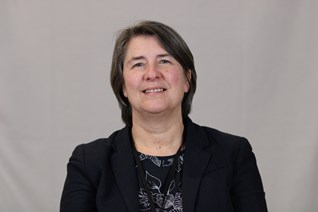Patricia Coyle is Principal Planning Officer, Development Management at Harlow Council
 With nearly 35 years working mainly in local authority, and with considerable experience in development management, I have personally read hundreds, probably thousands of comments and objections to planning applications – and yes, I do read every one.
With nearly 35 years working mainly in local authority, and with considerable experience in development management, I have personally read hundreds, probably thousands of comments and objections to planning applications – and yes, I do read every one.
Some are hit and miss, with many referring to non-planning issues, including comments showing no understanding of the legal nature of planning, the legal procedures involved or the constraints placed on the planning process.
In my early career I was a volunteer and also a director of Planning Aid for London, where I helped a group make comments on a redevelopment of Crystal Palace. More recently, I have advised community groups in the Knowle West area of Bristol as a Planning Aid England (PAE) volunteer. Through these experiences I have learnt that, across the country, people find the planning process to be equally daunting, equally complex and equally difficult to get actively involved in.
Communities often share a frustration as they don’t always understand why their comments and objections to planning documents and planning applications are ignored (or appear to be). This is where training on how to engage with the planning system can help communities participate more effectively in the process and make their voices heard.
How Planning Aid England is working with Knowle West residents
Following initial discussions with the planning and housing teams at Bristol City Council (BCC) and a representative from the Knowle West Regeneration Residents Planning Group (KWRRPG), PAE were asked to provide an online training session to help residents engage effectively with local planning and development activities.
Planning Aid England (PAE) staff and I then met with the development management team manager at BCC to gain background on relevant planning policies and their consultation procedures.
The training took place via Microsoft Teams in early February 2022 and was attended by the KWRRPG as well as the Knowle Neighbourhood Planning Group, Re:work and BS4 residents. The training session covered aspects such as:
- The planning process
- The legal position
- What consultation is and why it sometimes differs from Council to Council
- How to comment on Policy-lead consultation (Frameworks, Planning Briefs, Local Plans and Allocations)
- What is the best approach to provide relevant/useful comment on planning applications. From using “holding objections” where group meetings don’t fall in statutory periods, to suggesting conditions and when support can be given to the principle of development without undermining other detailed concerns.
Through our work in the area, I like to think that PAE have made friends at Knowle West who will share the message that planners are prepared to listen and that it is easier if comments are well written, concise and raise solely planning issues to get the “right development in the right place” for their area.
I know it’s a cliché but the most rewarding aspect to volunteering is that you feel you have given something back. Being able to pass on knowledge so that a community can make a good, clear, concise, relevant submission so that they are heard more clearly will be a good result.


